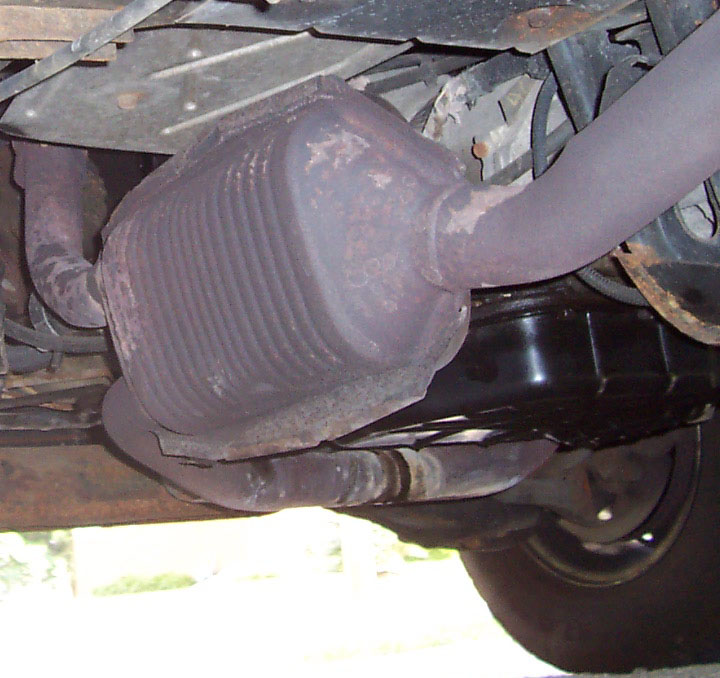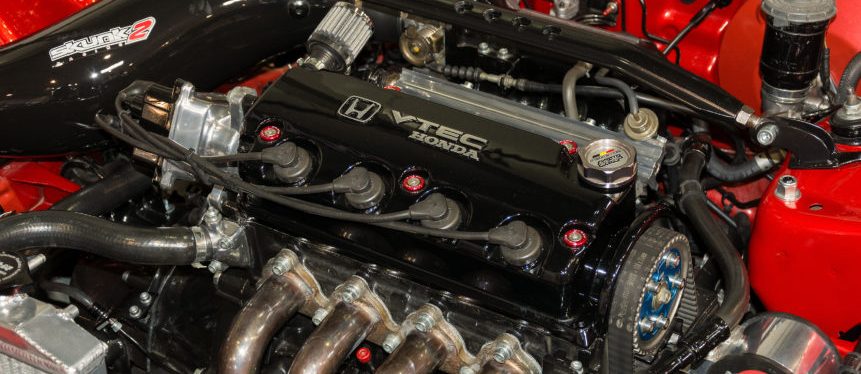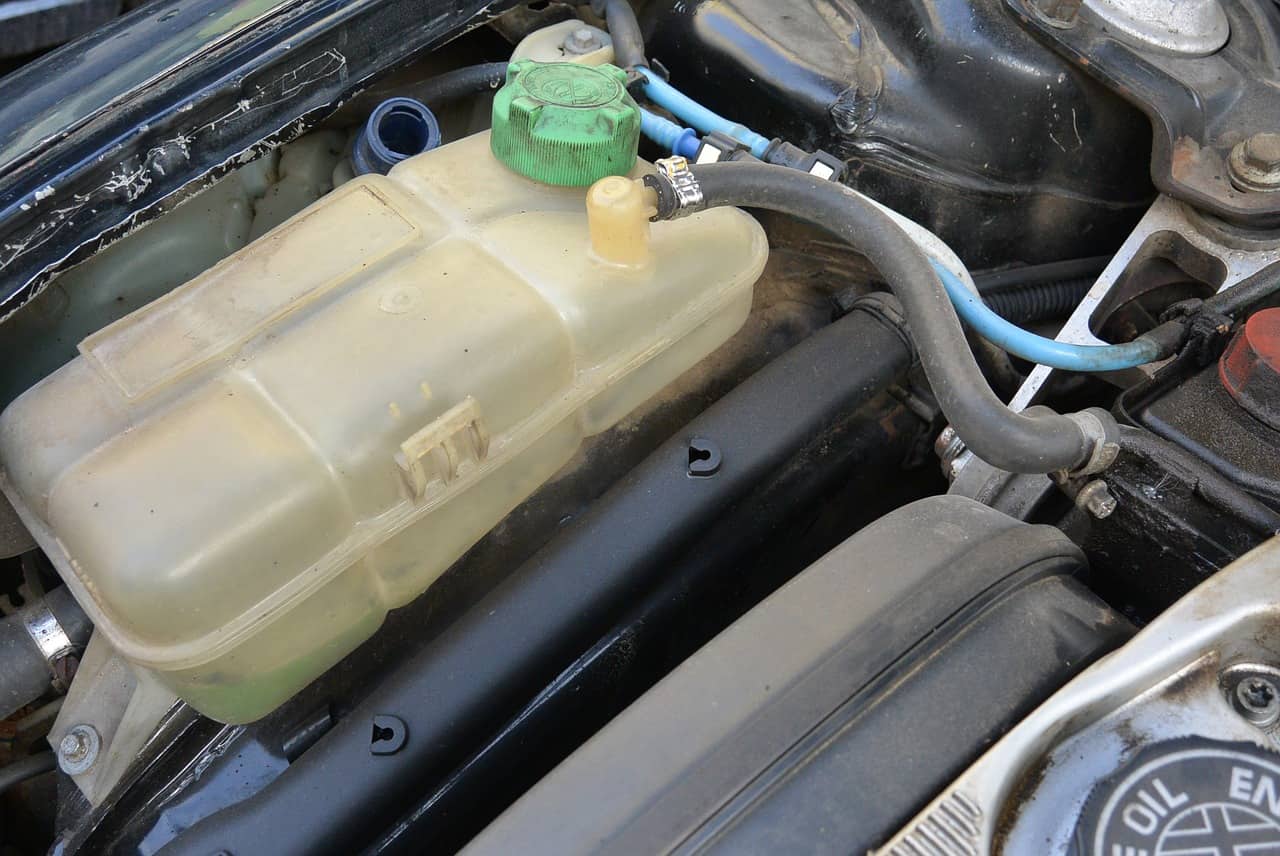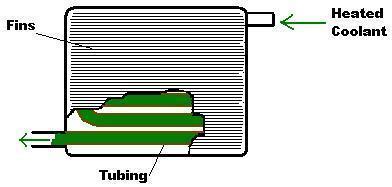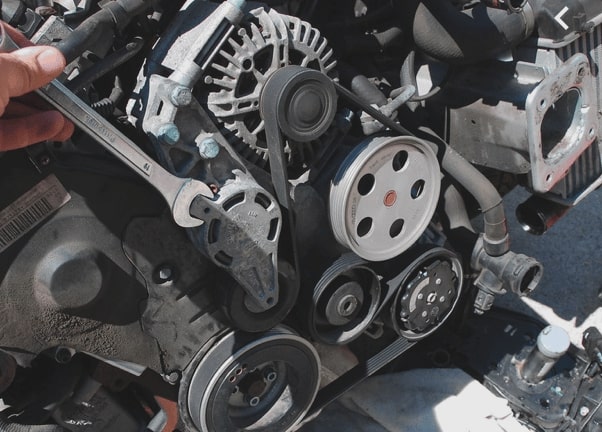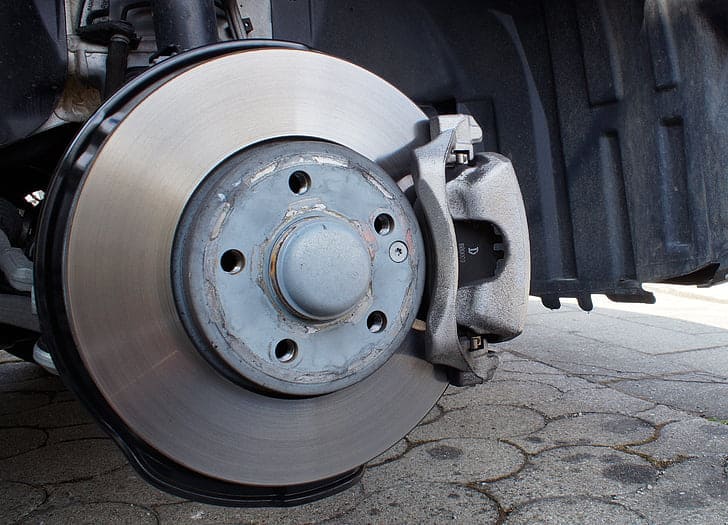When driving your car or truck, it’s important to listen to your senses. They can tell you a lot about what is going on underneath the hood (or chassis). People often think of hearing the problem or seeing the problem when diagnosing car problems. But, there are plenty of vehicular problems that the nose is going to be able to detect best.
Your vehicle is filled with fluids. From the sweet smell of antifreeze, to the dirty smell of oil, there is a lot you can find out by opening your nose.
Here are the most common smells that a car or truck can make.
Table of Contents
1. Rotten Eggs
2. Burning Oil
3. Sweet Smell (Like Syrup)
4. Burning Rubber
5. Gasoline
6. Burning Carpet
7. Mold & Mildew
8. Conclusion
1. Rotten Eggs
The smell of rotten eggs is one of the most common smells that a car or truck will make. It can describe a few things. But, this smell is most associated with a failing catalytic converter.
Bad Catalytic Converter
The catalytic converter goes in between your engine and the tailpipe of the vehicle. It scrubs out the majority of the pollutants that your engine makes.
When it (there can be more than one) is working properly, the converter produces sulfur dioxide, which is odorless. When the catalytic converter is not working properly it produces hydrogen sulfide, which smells exactly like rotten eggs.
There are oxygen sensors on each end of the catalytic converter. They are known as the “upstream” and “downstream” converters. They measure the oxygen content before and after the exhaust has entered the converter. This allow your vehicles ECM to check that the converter is working.
Diagnosis
- Check the Trouble Codes– When a catalytic converter has gone bad, they will let you know by throwing a diagnostic trouble code, such as P0420. If your check engine light happens to be on, take a look and see if you have a trouble code related to the converter. This, plus the smell of rotten eggs is a very strong indication that the converter has gone bad.
- Performance Loss– It is also worth mentioning that a catalytic converter that is clogging will eventually cause a severe performance loss. Your engine is a pump. Too much back pressure from a clogged converter can clog the pump.
Usually this loss of performance will feel like the vehicle just runs out of go at a certain speed. It’ll still rev fine in neutral, but when you really need the power, it just won’t be there.
Overheating
Keep an eye on your temperature gauge if you smell rotten eggs. An overheating engine can smell a bit like rotten eggs. It can smell like a lot of things. It really depends on what fluids are on and around it that get hotter than they normally would. When these fluids (oil, antifreeze, power steering fluid, etc) get hot, they can cause the smell of rotting eggs.
Burnt Clutch
If you have a manual vehicle, a burnt clutch can have a very strong smell of eggs. It’s the smell of the clutch disk burning up. A clutch that is at the end of its service life will begin slipping when it is being asked to move a lot of force from the engine to the transmission. When this happens, the RPM’s rise like you’ve released the clutch momentarily and it creates the smell of rotten eggs.
2. Burning Oil Smell
The smell of burnt oil indicates that engine oil has made its way out of the crankcase and leaked onto the exhaust. Four out of five times this means that the oil has slipped past the valve covers onto the exhaust manifolds.
The good news with burning oil is that it is not very difficult to find it. You just have to poke around the hot engine until you do. Just be aware that the exhaust can burn you and the fan can come on at any time, even if the engine is off.
Symptoms + Diagnosis
- Inspect the Exhaust Manifolds– Look at the exhaust manifolds with the engine running. If you smell oil, you should see it burning somewhere. If you see smoke coming off of the manifolds, you’re going to want to tighten the valve covers.
- Valve Cover Gaskets– Modern cars use reusable rubber gaskets. While it is possible that they could need replaced, it’s much more likely that you can get away with tightening the valve covers back up.
- Overheating– You can get the smell of oil when the vehicle is overheating as well. This is due to oil that has been sitting on the engine in places where it normally wouldn’t burn suddenly getting hot enough to burn.
3. Sweet Smell
Engine Coolant Leak
Sweet smell is mostly associated with the ethylene glycol found in anti-freeze. The real challenge is finding where the smell is coming from.
The first thing that you need to do is check the engine coolant overflow canister. Make sure that it is filled to the proper level. If it is low or empty, that would confirm that you have coolant leaking from somewhere.
Make sure to keep it filled all the way up. Try not to drive it with a leak if you can help it. The leak can get worse, which can cause you to overheat, which could cause a cracked head or a blown head gasket.
Symptoms + Diagnosis
- Radiator Leak– A leaking radiator is one of the most common ways that the cooling system can leak. All it takes is a rock coming in through the grill to create a leak. Take a look at the radiator and check for obvious signs of a leak. Watch out for that electric fan. Assume it can turn on as long as the battery is connected. So, unhook the battery.
- Radiator Hose– A cracked radiator hose will leak and cause the sweet smell. Look at the hose carefully and check for any damage or cracks. If it has a leak you’ll need to repair. Common leak locations are going to be by the thermostat housing, where the hoses meet the radiator, as well as where they branch off to the heater core.
Blown Heater Core
Your vehicles heater core is a miniature radiator placed under the dash. Coolant runs to it from the engine. The blower motor blows air over the heater core, which warms the cabin up.
Symptoms + Diagnosis
- It’ll Alway’s Smell Sweet– If the heater core gets a leak, it will smell very sweet inside of the vehicle even when the heater is not running. But, it’ll smell even worse when it is running.
- Coolant Will Leak Into the Cabin– Be aware that a heater core that has gone bad will do more than smell bad. It will leak onto the floorboard. 99% of the time, it’ll be the passenger floorboard that gets the coolant. This will cause rust issues and musty carpet. Whether you can feel it on the carpet or not depends on how big the leak is. If left unchecked long enough the floorboard can rust out.
4. Burning Rubber
The smell of burning rubber can mean a number of things. Usually, it’s a bad serpentine belt.
Slipping Belt
Modern vehicles have serpentine belts that turn more than one engine accessory. When they go bad, they’ll begin to slip. A byproduct of this slipping is a loud noise, it sounds like a screeching sound, and the smell of burnt rubber.
Symptoms + Diagnosis
- Squeal– A slipping serpentine belt will squeal loudly. It’s most likely to happen on a cold start. There’s not enough tension between the belt and the accessories for the belt to grab them properly. As it spins and rubber burns, it’ll warm up and grab the accessories. It’ll also create a terrible burnt rubber smell.
- Battery Light– There’s a good chance that the battery light will stay on longer than normal. This is because the alternator wasn’t spinning fast enough when the engine started.
- Look at the Tensioner and Belt– You’ll want to inspect the serpentine belt for glazing. A glazed belt looks shiny due to having slipped and/or burnt. A dry rotted belt also needs replaced. Even if the serpentine belt looks fine, go ahead and jiggle it. It should not have a lot of give. If it does, that could indicate that the belt tensioner needs replacing.
Hoses
Take a look at all of the hoses, belts, and wiring harness. Is any of it touching the engine or exhaust? That can be a sure fire way to get a rubber smell. Every harness and hose has a connector that keeps it from touching something that it should not. Make sure that nothing broke that is allowing these parts to move.
5. Gas Smell

The smell of gasoline can come from a number of issues. Some of them are pretty serious.
Overfilled Fuel Tank
If you are one of those people who likes to try and squeeze an extra half gallon into the fuel tank, you need to stop. It’s bad for the vehicle, and can lead to a fuel smell until you can burn through the extra gas.
EVAP Leak
The evaporative emissions control system is designed to take the fuel vapor from the gas tank and cycle it back through to the engine. When the EVAP system is leaking, the gas vapor can escape creating a slight smell of fuel.
Symptoms + Diagnosis
Most of the time, an EVAP leak is going to be accompanied by the check engine light. If yours happens to be on, check and see if there is an EVAP code.
Gas Cap
A bad fuel cap will cause fuel vapor to escape into the air. This can cause the smell of gas.
Symptoms + Diagnosis
- Make Sure the Fuel Cap Clicks– Turn the fuel cap all the way down and make sure that it clicks. If it doesn’t, it probably needs replacing.
- Check the Seal– There’s a rubber seal where the gas cap meets the fuel receiver. If it is damaged or missing, it’ll allow fuel vapor into the air.
Fuel Leak
While the odds of a modern vehicle developing a fuel leak are small, it can still happen.
Symptoms + Diagnosis
- Decreased Fuel Mileage– If fuel is leaking out of the vehicle somewhere, that is fuel that you are not going to have to move further down the road. Fuel mileage can decrease significantly when this happens.
- Check it Out– You should be able to see a fuel leak if you look under the vehicle. Follow the fuel line from the tank to the fuel injectors. Use your eyes and your nose. Here’s a great video on how to find a fuel leak(YouTube).
If you have reason to believe that there is a fuel leak in your vehicle Don’t drive it anywhere. It can literally blow up.
6. Burning Carpet
Bad Brakes
Burning carpet is most likely to be caused by brakes that are dragging. The smell of brakes burning is sometimes identified as rotten eggs. It just depends on who’s sniffing, and what the brake pads are made of. Is the parking brake fully releasing?
Symptoms + Diagnosis
Take a walk around the car if you are smelling this. You will often see one of the wheels smoking. That’s the brake cooking. Dragging brakes can often be caused by a crimped brake line, a stuck caliper, or bad wheel cylinder.
7. Musty Smell
A musty smell is caused by a mold and mildew in your car’s A/C evaporator, it can be caused by a water leak.
Bad Evaporator
A bad evaporator will be most apparent when you turn the air conditioner on. If this is the case, you’ll have to have the system cleaned.
Leak
This happens a lot to older cars with sunroofs or convertibles. Water will get in when it rains. It’ll sit in the carpet, and eventually it’ll be colonized by mold and mildew. Look for carpet that is no longer the right color.
Conclusion
Although it can be annoying trying to track down a bad smell coming from your vehicle, it is still better than not smelling the problem and waiting for something to break. What caused the smell in your car? Leave a comment below and let us know!

